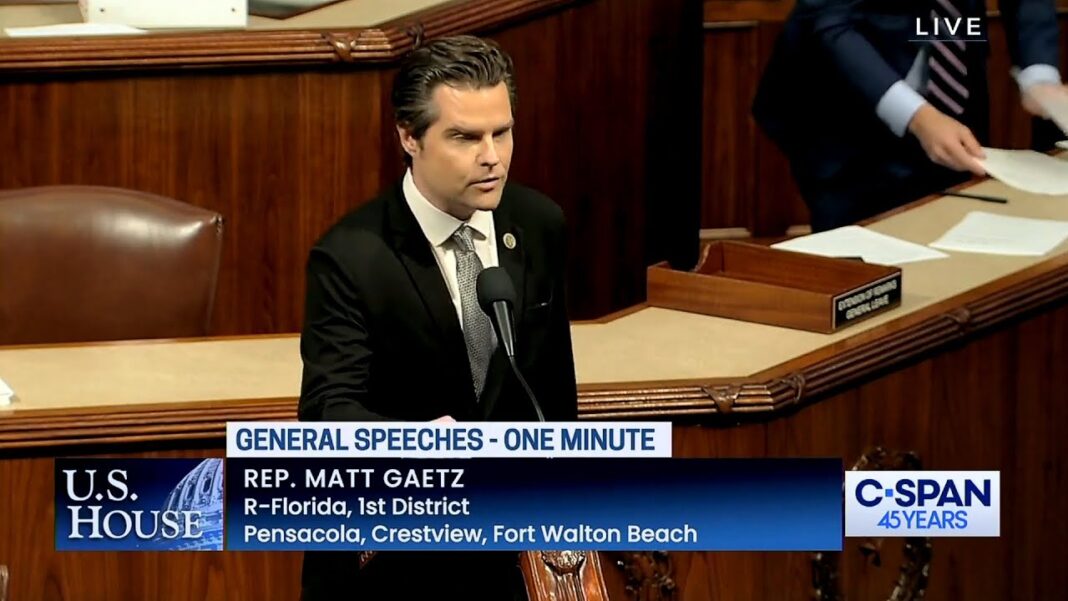In the visitor’s gallery Russian agents Boris Badenov and Natasha Fatale are eavesdropping, deciding whether to use their secret “Goof Gas” to turn the American Congress stupid, as they did to the rocket scientists in the last episode of “Bullwinkle.”
Our two spies glance at each other. “Natasha,” Boris asks, “Are American spies smarter than Russian spies.” “Why?” she responds. “Well, what if they steal our new secrets?” says Boris. Natasha smiles, “Not to worry, my little comrad. If they do, that will put them at least two years behind–from where they are now.” Boris thinks for a moment, then grins widely, “Excellent! We Russians are clever, aren’t we?”
I grew up in the ’50s,’60 and ’70s in America. The Rocky and Bullwinkle Show was part of my weekly TV routine as a youth. Yet, it also was subtle in its content–complete with popular adult satire. And there were others as well, especially Hogan’s Heroes. What is interesting is that each of these shows had two things in common: First, they were TV series which means they aired repeatedly, for years. Second, they fully embraced and disseminated US propaganda during the Cold War. Together, that meant each week we received a steady, continuous “dose” of anti-Russian propaganda without official Washington having anything to do with it.
But it was Boris and Natasha from Rocky and Bullwinkle that captured the ethos of the Cold War and the official view of Russia that Washington wanted Americans to have.
Unconscious propaganda is quite powerful, and it can participate in ‘manufacturing consent’ for public consumption just as effectively as that from conscious intent. People of all nations must learn to recognize both and guard against its uncritical assimilation into one’s consciousness. As it can influence our beliefs and affect our behavior towards others without us ever wondering why.
So, what do temper tantrums and US foreign policy have in common? After 70 years of sustained anti-Russian propaganda (conscious as well as unconscious) one develops at least antipathy against a country, if not virulent enmity for its leader. In this case, that would be Vladimir Putin, President of the Russian Federation. And you get this result because of what Ed Hermann and Noam Chomsky called in their 1988 seminal text, Manufacturing Consent. The authors demonstrate how the US government, media and military-industrial complex work to espouse propaganda designed to convince the public of why we should demonize a particular country and its leadership. As mentioned in the book, this well organized propaganda machine goes all the way back to the Cold War of the 50’s. And it has become more proficient and better financed since then (Vietnam, Iraq, Afghanistan, Ukraine just to name a few).
As the Pentagon continued to prosecute the Vietnam war in 1970, Erich Segal was putting the finishing touches on his novel, Love Story. In it, one line achieved, seemingly, immortal fame:
“Love means never having to say you’re sorry.”
This line apparently is indelibly imprinted onto the consciousness of those holding political office in D.C. I say this because Washington adopted this mantra, including the love, but with its own–not so benign twist. Washington is in love…with power, and achieving political power there means “never having to say you’re sorry–for anything!” And this holds regardless of how many people you might have gotten killed or wounded by fostering ill conceived, shortsighted, foreign policy interventions which fail (Afghanistan-2021) or perhaps don’t (the assassination of democratically elected Iranian Prime Minister Mossadegh in order to install Shah Pahlavi-1953). Moreover, the prevailing left-right political divide in America is what keeps those responsible for these interventions from ever being held accountable. Each side protects its own and always points its finger across the aisle when things don’t work out. And as history admonishes–they seldom do.
The Vietnam War cost $$843.63 billion in 2019 dollars (247wallst.com-6/7/19). And in 1975 after 10 years and 50,000+ dead Americans, South Vietnam capitulated to the North as an American helicopter lifted off the US Embassy rooftop for the last time. I know–I was in that military theater of operation at the time.
More recently, in 2002 the US and UK used its propaganda effectively in getting the American and British populace on board with the Bush and Blair administrations’ desire to go to war and nation-build democracy in Iraq. At the time, upwards of 80% of the citizens in America and 66% in the UK were persuaded to support the war. As of this writing, more than 67% of Americans and British subjects now believe it was a tragic $1.1 trillion mistake. Depending upon your source, 150,000-250,000 Iraqi civilians died and 4,538 British and American soldiers perished with over 32,000 wounded (www.pewresearch.org).
In the last two decades, “war hawks” like US Senator Lyndsey Graham, Under Secretary of State for Political Affairs, Victoria Nuland and former National Security Advisor John Bolton, were all in for “regime change” in several countries (Iraq, Iran, North Korea, Venezuela and recently, Russia). These quite dedicated Americans, along with many others of like mind, treat foreign policy concerns like it is a personal affront to them. In other words, they pursue the conflict as though they are seeking redress for the transgressions against them, personally. Two problems attach to such a response. First, and this is occurring right now, when questioned, the response is intensely emotional and therefore personal, not professional. I suspect this is part of the reason why the response from the West is so visceral and often escalates to precarious levels, needlessly. Second, even in a stable world of more reason and less emotion (which is not the case today) there are, invariably, unintended consequences to every decision and action made by a nation state. And this is especially true in foreign policy interventions. If those are not well analyzed (i.e. well thought through without giving way to temper tantrums), innocent people die (150,000-250,000 civilians in Iraq, Syria and Libya) for very little and sometimes for nothing at all in Afghanistan (BBC-Syria war: UN calculates new death toll: 300,000+ from civil war-9/24/21; Statista-Iraq war 2003-2024: 180,000-190,000; Foreign Policy Magazine/Airways-Libya war est. 223-403 2011-3/20/21).
With due respect for the personal and professional military and political contributions to the US made by its “war hawks,” America needs your insight and experience into what is best for her. But it is not advantaged by your homiletics and moralizing over Ukraine as some sort of “model” for European democracy and freedom. That country is the very epitome of nation-state graft and corruption in the government and the elite. In 2012 Ernst & Young put Ukraine among the three most-corrupt nations from 43 surveyed, alongside Colombia and Brazil. In 2015 The Guardian called Ukraine “the most corrupt nation in Europe” (Oliver Bullough 2-6-15). According to a poll conducted by Ernst & Young in 2017, experts considered Ukraine to be the ninth-most corrupt nation from 53 surveyed (Detailed results. EY Fraud Survey).
You may recall, America’s first president offered remarks of caution in 1796 with his ‘Farewell Address’ to the nation. Among Washington’s chief warnings in this speech was that the United States should avoid excessive debt, take great care to stay out of unnecessary wars and resist foreign entanglements. His actual words were:
“Why should we [America] entangle our peace and prosperity in the toils of European ambition?”
It appears we have not embraced our first president’s admonition on any of his concerns.
Meanwhile, Sen. Graham has slipped into redundancy by resorting to an old but convenient refrain invoking Nazi Germany.
You know the logic employed. Conflicts today, inevitably, at one point or another, are rationalized by someone through the lens of Hitler’s conquest of what eventually became most of NATO. The reasoning (or rather, lack of it) goes like this: Anyone who is not salivating with enthusiasm, or at a minimum tacitly supportive of those conflicts, must be Neville Chamberlain, redivivus.
“The Neville Chamberlain approach to aggression never ends well,” said Mr. Graham, comparing Mr. DeSantis to the British prime minister who sought to appease Adolf Hitler. “This is an attempt by Putin to rewrite the map of Europe by force of arms.”
American philosopher George Santayana admonished us that if we do not learn from history, we are condemned to repeat it. On the other hand, we must also guard against revisionist tendencies to rewrite or misconstrue history to suit our own political agenda.
The reality of the current state of affairs is this: The much vaunted Western sanctions designed to cripple Russia economically, politically and militarily are not working as planned. That cat is already out of the bag. According to even some western mainstream media sources (Financial Times, The Economist, etc.), Russia, by any number of indices, is stable economically and politically. Some have suggested perhaps even better off than ‘before Ukraine’.
In the paraphrased words of Daniel to King Belshazzar of the Hebrew Scriptures: the handwriting is on the wall. At some point, and probably soon, the United States and, I think it’s fair to say, its “EU and UK vassals,” must decide what the end game is. And as it stands right now, according to a growing number of political and military experts on both sides of the Atlantic, that end game is not likely to result in Ukraine retaking Crimea or the Donbas (Politico, Feb. 2023).
So, besides the US and its vassals’s extraordinary efforts at breaking the will of the Russian people, destroying the Russian economy and overthrowing Vladimir Putin, Senator Graham, what is America’s “end game” with the proxy war in Ukraine?







